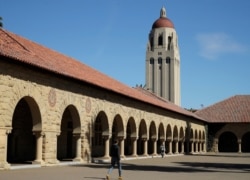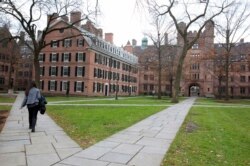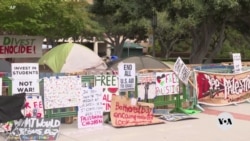Student Union
Screen College Students for COVID Every 2 Days, Researchers Advise
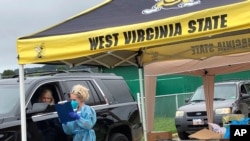
U.S.-based colleges and universities continue to struggle with how they will receive students while containing the spread of COVID-19.
Nearly 40% of schools say they will bring students back to campus, according to the Chronicle of Higher Education, which has compiled a database of college and university responses to COVID since the spring.
Even at schools where classes are 100% online, many students are living off-campus and taking online courses rather than remaining at home with their parents.
Researchers say schools would have to test their students every two days for COVID-19 to ensure their health and safety, and screening after symptoms emerge won’t control the spread, according to a study published July 31.
“We believe that there is a safe way for students to return to college in fall 2020,” the study authors wrote in JAMA Network, the publishing site of the Journal of the American Medical Association, on July 31.
“Screening every two days using a rapid, inexpensive, and even poorly sensitive test, coupled with strict interventions ... was estimated to yield a modest number of containable infections and to be cost-effective,” the authors wrote.
Another study by Cornell University in upstate New York suggested if students were tested every five days, that population would be safer in their campus bubble than the online student population, which would freely circulate where they reside.
But not every school is equipped to conduct COVID-19 testing at that pace because of staffing and cost.
At Mercer University in Macon, Georgia, the school community “must unilaterally share the responsibility of taking the necessary steps to minimize the risk of COVID-19 infections throughout our campuses.” Students will take a survey, and “may be required to be tested for the SARS-CoV-2 infection (COVID-19), depending on their survey responses. Regardless of survey results, any student may request and be tested for COVID-19.”
“Symptom-based screening alone was not sufficient to contain an outbreak,” the study authors wrote.
COVID-19 “can be transmitted by highly infectious but asymptomatic ‘silent spreaders,’” lead study author A. David Paltiel, Ph.D., of the Yale School of Public Health, described to VOA.
“It simply isn’t possible to move swiftly enough to contain an outbreak using nothing more than symptom-based monitoring. You can’t play catch-up with this virus,” Paltiel wrote.
“A school that tests and responds only when symptoms have been observed is like a fire department that responds only to calls when the house is already known to have burnt to the ground.”
At the State University of New York (SUNY) system, students are required to produce negative test results that were taken within 14 days before their arrival back to campus. The university asks them to quarantine between the test and receiving results, according to SUNY’s website.
“If you have symptoms consistent with COVID-19 or a temperature that is over 100 degrees Fahrenheit or 38 degrees Celsius, you will be directed to contact Student Health Services for an evaluation and a determination if you need to have a COVID-19 PCR test,” said the letter to students sent by Rick Gatteau, Stony Brook’s vice president for student affairs.
This, again, may be insufficient, the researchers said.
“Many schools are considering the option of carefully monitoring students for the symptoms of COVID-19 and using signs of illness to trigger isolation, contact tracing, and quarantine. We explored thousands of scenarios and failed to find even one plausible circumstance under which this strategy would be sufficient to contain an outbreak,” he wrote VOA.
“This sets a very high bar — logistically, financially, and behaviorally — that may be beyond the reach of many university administrators and the students in their care.”
At private universities like Stanford University in California, which has a $27.7 billion endowment, students will be tested for free.
“Each student will be tested twice: Once on approximately days 0-2 upon arrival, and then again on days 5-7 of their residence within Stanford housing. The tests will come at no cost to students,” according to the university’s COVID-19 FAQ’s page.
At Columbia University in New York City, all students, faculty and staff returning to campus will be required to take a COVID-19 test, they stated on their website.
“Students who test positive through the university testing program will be referred for contact tracing and will be required to isolate in designated on-campus rooms or in their off-campus residences until released by Yale Health,” Yale University stated on its webpage. “Medical monitoring and advice will be provided by Yale Health during isolation.”
Other educators say it is a struggle to manage social behaviors among young college students that might thwart their efforts.
University of Connecticut Professor Sherry Pagoto in the allied health sciences department, with graduate student Laurie Groshon, conducted student focus groups about returning to campus.
College students return to campus in a few weeks. We wanted to know their thoughts about quarantine, symptom tracking, contact tracing, and mask wearing on campus, so my grad student @laurie_groshon and I did focus groups to find out.
— Sherry Pagoto (@DrSherryPagoto) July 11, 2020
Here’s what students told us
1/x
“Every student we asked said that this is not realistic and will likely fail,” Pagoto tweeted.
“They pointed out that students are eager to see each other and will find a way to do so when they arrive on campus. They said that students who live one to two hours away will try to find a way to go home,” she tweeted. “They said off campus students will likely find their way on campus.”
Dr. Ravina Kullar, an infectious disease expert, backed up the students’ feedback.
“Preventing infection requires everyone to abide by strict infection control measures, including mask-wearing, hand hygiene, and social distancing on campus,” Kullar told VOA.
Colleges have a responsibility to supply students with adequate screening, masks and hand hygiene supplies, Kullar said, but success lies in the hands of the students and staff in abiding by strict COVID-guidance and not having mass social gatherings.
So many opportunities for exposure, and absolutely no routine testing. I'm worried.
— Dr. Theresa Chapple (@Theresa_Chapple) July 31, 2020
>
See all News Updates of the Day
Columbia University cancels main commencement after protests that roiled campus for weeks
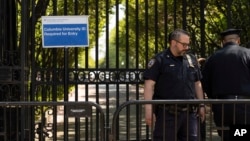
Columbia University is canceling its large university-wide commencement ceremony amid ongoing pro-Palestinian protests but will hold smaller school-based ceremonies this week and next, the university announced Monday.
"Based on feedback from our students, we have decided to focus attention on our Class Days and school-level graduation ceremonies, where students are honored individually alongside their peers, and to forego the university-wide ceremony that is scheduled for May 15," Columbia officials said in a statement.
The protests stem from the conflict that started Oct. 7 when Hamas militants attacked southern Israel, killing about 1,200 people, mostly civilians, and taking roughly 250 hostages. Vowing to destroy Hamas, Israel launched an offensive in Gaza that has killed more than 34,500 Palestinians, about two-thirds of them women and children, according to the Health Ministry in the Hamas-ruled territory. Israeli strikes have devastated the enclave and displaced most of its inhabitants.
The University of Southern California earlier canceled its main graduation ceremony while allowing other commencement activities to continue.
- By VOA News
Where Are Pro-Palestinian Campus Protests Happening?
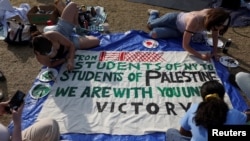
Colleges in the U.S. have been rocked by a wave of campus protests calling for an end to the war in Gaza, and for U.S. colleges to divest from Israel.
The Wall Street Journal’s Steven Russolillo rounds up some of the most important ones. (April 2024)
Pro-Palestinian protests in US could impact 2024 election
Despite the fact that many of their encampments at university campuses have been dismantled, pro-Palestinian demonstrators in the United States are standing their ground. If the protests continue, some analysts say they could have an impact on the 2024 presidential election. VOA’s Veronica Balderas Iglesias explains.
- By VOA News
Pro-Palestinian protest ends quietly at University of Southern California
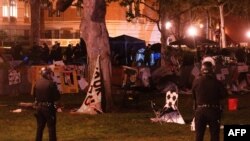
Pro-Palestinian protesters at an encampment at the University of Southern California, one of the focal points of anti-Israel protests across U.S. college campuses, left the scene early Sunday after authorities warned them that they could be arrested.
Their departure came after university safety officers and Los Angeles police began clearing the center of campus, where police had arrested 93 people on April 24.
"If you are in the center of campus, please leave,” the university warned the protesters on the social media platform X, saying they could be arrested if they stayed.
Elsewhere, pro-Palestinian protests continued at several college graduation ceremonies on Saturday.
At the University of Virginia, 25 people were arrested for trespassing after police clashed with pro-Palestinian protesters who refused to remove tents from the campus.
At the University of Michigan, demonstrators chanted anti-war messages and waved flags during graduation ceremonies. More protests occurred at Indiana University, Ohio State University, Princeton University in New Jersey and Northeastern University in Massachusetts.
- By VOA News
Amid internship pressure, international students should focus on self-care
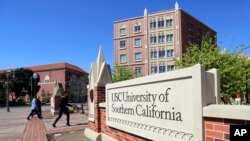
That’s the argument of Edhita Singhal, an international student from India studying at the University of Southern California.
Despite the fear of not finding a good internship, it’s important to relax and take care of yourself, she writes in her biweekly column for campus newspaper The Daily Trojan. (April 2024)





